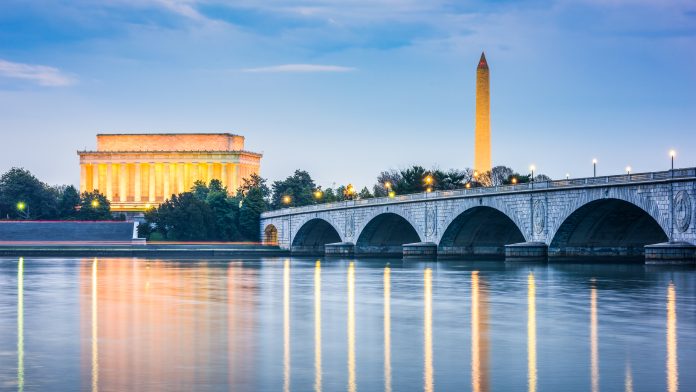Expert Insights
Does it surprise you to learn that Washington DC has such a prominent drug problem? In truth, it shouldn’t. The general public typically sees DC as the place where our nation’s laws are created and debated. Images of the Whitehouse, the Capitol Building, the Lincoln Memorial, and the Smithsonian come to mind when most people think of Washington DC. But that’s not an accurate representation of the people who live in DC. This city has some of the most glaring economic disparities I’ve ever seen, and the public school system has one of the lowest graduation rates in the country. An astounding 1/4 of all DC residents live below the poverty line. And we all know that substance abuse and poverty go hand-in-hand.
~ Natalie Baker
How Expensive is Rehab in Washington DC?
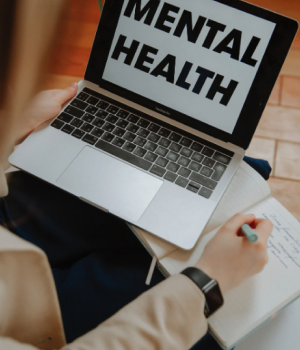 Many factors can influence your out-of-pocket costs for addiction treatment. Those factors include treatment setting, amenities offered, and the duration of the program.
Many factors can influence your out-of-pocket costs for addiction treatment. Those factors include treatment setting, amenities offered, and the duration of the program.
Inpatient rehab typically costs more than outpatient because you live full-time at the facility. In addition, any luxury amenities offered, such as gourmet food, private rooms, and spa treatments, also add to the overall price.
Private insurance helps to keep costs down, as these plans typically cover at least some of your rehab costs when the facility is in network with your insurance plan. You can check your coverage by calling the number on the back of your insurance card or reaching out to one of our treatment support specialists.
If insurance or self-pay isn’t an option, you can explore the many free and state-funded rehab programs available in the DC area.
Free Treatment Options in Washington DC
The District of Columbia offers the Drug Treatment Choice Program.4 This provides residents access to detox services, residential treatment, and outpatient treatment based on their level of need.4 This program includes rehabs that are covered by Medicaid or Medicare, as well as options for those without any insurance.4
Other than a state-funded rehab, you can also make treatment more affordable by looking for individual rehab scholarships, choosing a rehab with a sliding scale payment plan based on your monthly income, or choosing a rehab that is covered by insurance, whether that’s Medicaid, Medicare, or private insurance.
Does DC have a Drug and Alcohol Problem?
Substance use disorder is a serious problem in Washington DC Consider these alcohol and drug stats for DC:1,2
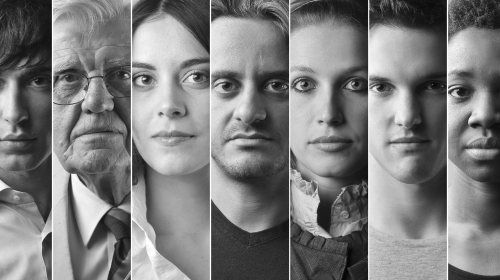
1 in 8 District of Columbia residents has a substance use disorder.
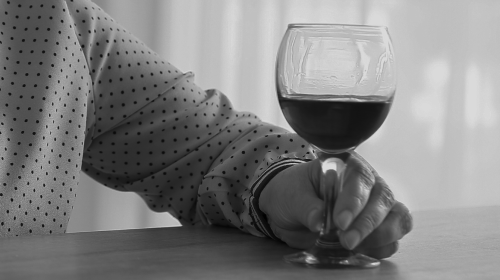
10% of District of Columbia residents struggle with alcohol misuse.
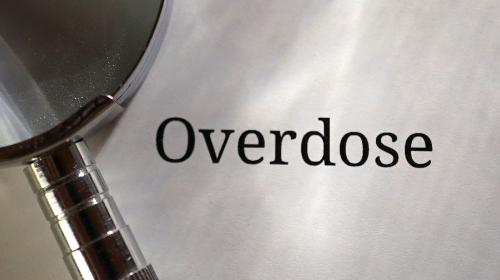
Opioid overdose deaths in DC have nearly doubled since 2018.

In 2020, 411 people died in the District of Columbia from an opioid overdose.
Around 76% of all fatal opioid overdoses happened among adults between the ages of 40-69 years old.2
In 2020, 94% of opioid overdose cases in the District of Columbia involved fentanyl.2
Important Drug Laws in Washington DC
From Drug Court to easy access to opioid-overdose reversing drugs, Washington DC has laws into place to help people get needed services for substance use disorders.
Naloxone Access Law: Residents of the District of Columbia can text LiveLongDC to 888-111 to find out where they can access free naloxone kits.7 This medication temporarily blocks the effect of opioids and helps the person experiencing an overdose to start breathing again. DC Health has also distributed naloxone kits through Fire and EMS, outreach workers, church leaders, pharmacies, and community organizations.
Drug Court: The Superior Court Drug Intervention Program is designed to handle cases involving defendants who have a substance use disorder and have been charged with a non-violent felony or misdemeanor. Drug Court includes testing, treatment services, and incentives. Eligible felony-charged defendants may have their charges reduced to a misdemeanor following successful completion of Drug Court.
Sanction-Based Treatment Track: Defendants who do not meet the criteria for Drug Court can participate in another type of programming called the Sanction-Based Treatment Track. Case managers supervise defendants and monitor their compliance with substance use disorder treatment, oversee their progress, review drug testing schedules, provide incentives as needed, and keep the court informed about treatment progress.
Re-Entry and Sanctions Center: The District of Columbia’s Pretrial Services Agency offers limited beds at its Re-Entry and Sanctions Center (RSC). The RSC serves male defendants with substance use disorders. A few beds are also available for women. This program helps to prepare the defendant to enter a residential or intensive outpatient treatment program.
District of Columbia Good Samaritan Law: The District of Columbia Good Samaritan law provides limited legal protection for anyone who witnesses or experiences a drug overdose and calls for medical help. The following protections are available6:
- The witness or overdose victim is protected from prosecution for possession of small amounts of illegal drugs or drug paraphernalia.
- A minor is protected from charges of underage possession of alcohol.
- An adult 25 years old or younger will receive limited protection for providing alcohol or other drugs to a minor 16 years old or older.
- Possession of naloxone is decriminalized.
Should You Travel to Washington DC for Rehab?
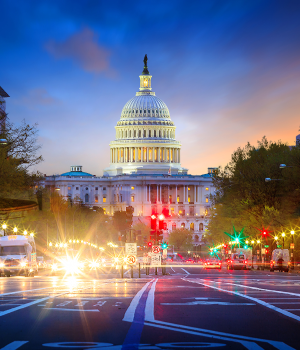 There could be several reasons why you choose to travel to DC for treatment. Maybe you live in an area that offers limited rehab options. Or maybe you have family and friends in the area, which would allow you to undergo treatment with a built-in network of support.
There could be several reasons why you choose to travel to DC for treatment. Maybe you live in an area that offers limited rehab options. Or maybe you have family and friends in the area, which would allow you to undergo treatment with a built-in network of support.
Neighborhoods in Washington DC to Consider
DC has more than a dozen thriving neighborhoods, each with a different vibe. Here’s a listing of just a few of them.
- Adams Morgan
This culturally diverse neighborhood features eclectic dining and incredible 18th-century row houses. Art fans will enjoy the DC Arts Center, an art gallery and performance space that features emerging artists. - Georgetown
This tree-lined historic neighborhood features cobblestone sidewalks, impressive homes, and the C & O Canal. It’s also home to some of the city’s top shops and restaurants. This neighborhood is also home to many small businesses and some of the city’s best art galleries. - Dupont Circle
Dupont Circle is known for its bistros, boutiques, and museums. Its centerpiece is the Dupont Circle fountain, where locals and visitors go to read, people-watch, and socialize. You can expect to find a wide variety of unique shops and interesting restaurants. - Capitol Hill
Capitol Hill is one of the district’s most popular places to live and features historic rowhouses, a market, plus a thriving restaurant scene. It’s also home to government buildings such as the U.S. Capitol and Supreme Court. The areas surrounding these buildings are filled with history. - Downtown
Washington DC has a thriving Downtown neighborhood. It offers a mix of in-demand restaurants, high-end shopping, and several well-known museums. It’s also home to the country’s most famous address, 1600 Pennsylvania Avenue, also known as The White House. You’ll find the Smithsonian American Art Museum in this neighborhood, along with the National Museum for Women in the Arts.
How to Choose the Right Drug Rehab in DC
With all the choices available, it can be hard to narrow down your list of potential programs. Here are a few things to keep in mind while you’re evaluating Washington DC drug rehabs.
Inpatient or Outpatient
Do you need the stability of an inpatient program, or do you have a supportive living environment that would make outpatient treatment a viable option? Choosing between inpatient and outpatient treatment from the outset will help narrow down your list.
Amenities
Once you’ve covered the basics, it’s time to look at amenities. If a private room, quality food options, a fitness center or pool, or other specific amenities are a priority, you’ll want to look for a rehab that offers these to its residents.
Treatment Approach
Perhaps faith plays a big factor in your life, or you enjoy exploring the mind-body-spirit connection. In that case, a faith-based or holistic rehab may be the right option. Busy executives can look for a rehab that caters to people who are unable to disconnect fully from their professional lives.
Cost
Cost also plays a major factor in the decision process. If you have private insurance, you’ll want to look for an in-network rehab to maximize your coverage. You can call the number on the back of your insurance card for more information.
If insurance is not an option, you’ll want to look for rehabs with flexible payment plans, financing options, or find a free or low-cost state-funded treatment facility.
Population-Specific Treatment
Men and women deal with addiction differently, so some rehabs offer gender-specific treatment. You can also find rehabs that offer tailored treatment programs to veterans, teens, and the LGBTQ+ population.
How to Choose the Right Level of Care
Multiple levels of care exist for alcohol and drug rehab in Washington DC Some people need to progress through all levels of care during their treatment, while others need only the less intensive options.
Medical Detox
Detox is the process of removing drugs or alcohol from your system while in a supervised medical setting. Many people choose a medical detox program to prevent severe withdrawal symptoms. This is often the first step in the recovery process, as it is completed before transitioning into formal inpatient addiction treatment services.
Inpatient Care
An inpatient or residential setting involves living at an accredited rehab facility 24/7 while receiving treatment for an alcohol or drug addiction. A combination of evidence-based interventions are provided, including types of therapy, nutritional counseling, and administration of medications.
Partial hospitalization programs (PHPs)
PHPs are a type of outpatient treatment in Washington DC that often involve many of the same methods found in inpatient care. The difference is, with PHPs, you visit the drug rehab during scheduled session times and then return home.
Intensive Outpatient Programs (IOPs)
IOPs are a type of outpatient treatment in Washington DC that allow you to attend treatment sessions at the facility for several hours a day, multiple days each week. However, the rest of your time is spent at home, at work, or at school.
Standard Outpatient
This is the least intensive treatment setting, making standard outpatient care appropriate for Washington DC residents who are motivated and have a strong support system. Treatment takes up one or two hours per week.
Relapse Prevention
Aftercare, or relapse prevention, provides ongoing support after your rehab program is complete. It may involve 12-step groups, non-12-step groups, ongoing therapy, sober living homes, alumni programs, and more.
What Happens After Rehab?
An inpatient rehab in Washington DC lasts for a minimum of 30 days, but can go up to 90 days or more if needed. Research shows the right length of treatment depends on the severity of your substance use disorder.5
Treatment doesn’t end once your inpatient or outpatient rehab is complete. The treatment team at your rehab will help you develop an aftercare plan before you complete the program. It’s important to create a plan designed to help you maintain your sobriety.
For some people, once rehab ends, they step down to another level of care. If you’ve just completed an inpatient program, it may make sense to transition to a type of outpatient program. People in one type of outpatient program may step down to a less intensive option.
Other aftercare options can include 12-step support group meetings such as Alcoholics Anonymous or Narcotics Anonymous, ongoing therapy, or a sober living residence if needed.
Resources
- Substance Abuse and Mental Health Services Administration. (2020). Behavioral Health Barometer: District of Columbia, Volume 6.
- Government of the District of Columbia, Office of the Chief Medical Examiner. (2021, April 20). Opioid-related Fatal Overdoses: January 1, 2016, to January 31, 2021.
- C. Health. (2021, June 3). D.C. Health Launches MyRecoveryDC to Raise Awareness of Addiction Treatment Services, Share Inspirational Stories of D.C. Residents in Recovery.
- Department of Behavioral Health. (n.d.). Substance Use Disorder Services.
- National Institute on Drug Abuse. (2020, September 18). Principles of Effective Treatment.
- Council of the District of Columbia. (2013). Seeking health care for an overdose victim.
- Department of Behavioral Health. (2020, September 30). Naloxone Available at 35 Sites Across the District

